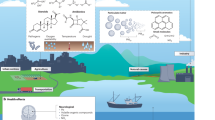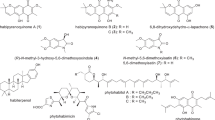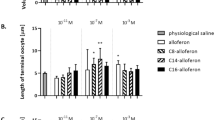Abstract
HAVING lately had occasion to examine the works of Maupertuis I, like Prof. Jevons, was struck by meeting with anticipatory glimpses of the modern theory of Natural Selection. The passage, given almost word for word by Lord Bolingbroke in the quotation made by Prof. Jevons, occurs somewhat incidentally in two parts of Maupertuis' writings; in the memoir alluded to (“Les Loix du Mouvement et du Repos, déduites d'un principe métaphysique”); and in the “Essay de Cosmologie,” into which the memoir was expanded five years later (1751). In both these works Maupertuis is chiefly concerned with establishing his well-known metaphysico-mechanical principle of “The Least Action” (“La moindre Quantité d'Action”); and with deducing therefrom proof of the existence of God. But the doctrine of “The Survival of the Fittest” is more clearly discernible, and more than incidentally referred to, in his small physiological treatise, “Venus physique” (Œuvres, tome ii. ed. 1756). The whole of this work is not wanting in interest, but as bearing specially on the subject in question, I would mention the third, fifth, and last chapters of the second part Chapter III. is entitled “Production de nouvelles especes.” In it the most pronounced passage is perhaps the following: “Mais la sage Nature, par le dégoût qu'elle a inspiré pour ces défauts, n'a pas voulu qu'ils se perpetuassent; chaque père, chaque mère fait de son mieux pour les éteindre; les beautés sout plus sûrement héréditaires; la taille, et la jambe, que nous admirons, sont l'ouvrage de plusieurs générations, où l'on s'est appliquè à les former.” Chapter V., called an “Essay d'explication desphénomènes précénts,” is an attempt to explain the physiological processes at work in the preservation of the best types, and in the production of new forms. On the efficacy of these processes the author says: “L'expérience pourroit, peut-être, éclaircir ce point; si l'on essayoit pendant longtemps de mutiler quelques animaux de génération en génération, peut-être verroiton les parties rétranchées, diminuer peu à peu; peut-être verroit-on les à la fin s'anéantir.” The last chapter contains a summary of the whole work, and a number of “Doules et Questions,” propounded by the author. In one of these he asks, “Cet instinct des animaux, qui leur fait rechercher ce qui leur convient, et fuir ce qui leur nuit, n'appartient-il point aux plus petites parties dont l'animal est formé?” In another question Maupertuis puts forward a bold hypothesis as to the influence which the decomposed material of the dead animal organism might exercise upon plants, and through them upon the structure and character of the living organism.
This is a preview of subscription content, access via your institution
Access options
Subscribe to this journal
Receive 51 print issues and online access
$199.00 per year
only $3.90 per issue
Buy this article
- Purchase on SpringerLink
- Instant access to full article PDF
Prices may be subject to local taxes which are calculated during checkout
Similar content being viewed by others
Author information
Authors and Affiliations
Rights and permissions
About this article
Cite this article
BREWER, W. Anticipations of Natural Philosophy Maupertuis. Nature 7, 402 (1873). https://doi.org/10.1038/007402a0
Issue date:
DOI: https://doi.org/10.1038/007402a0



